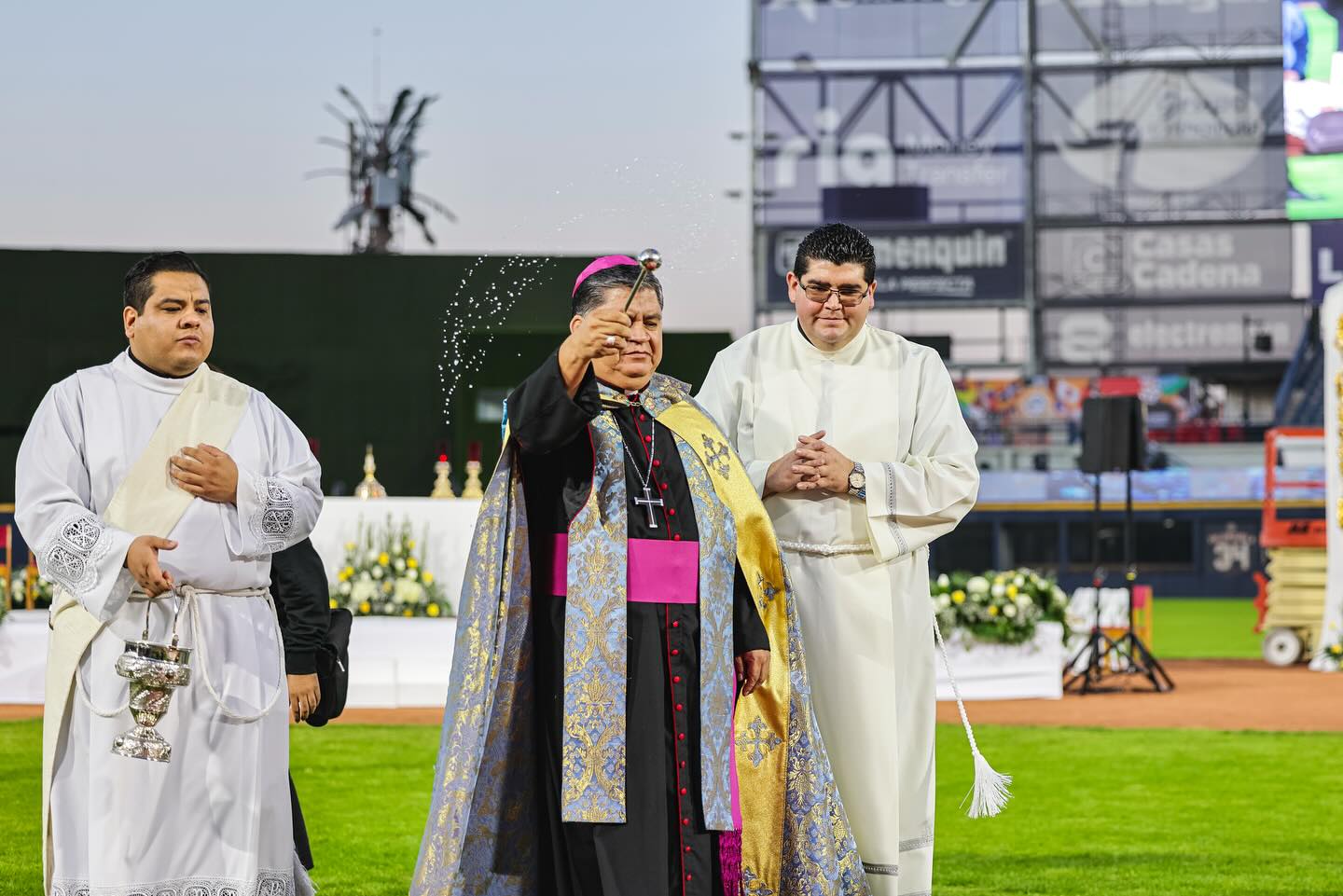
Before the highly anticipated baseball tournament that is being broadcast live worldwide on the MLB Network, ESPN+, and ESPN Deportes, players and fans gathered for a Catholic mass to ask for the protection of Mary. Rome was promoting its Eucharistic mass and Mary to a massive audience at the start of the 2025 Caribbean Baseball Series—an event that brings people together from different backgrounds. Ultimately, their goal was to evangelize and spread the Catholic message to a wide and varied audience.

Aciprensa published the following on February 1, 2025:
• “At the start of the 2025 Caribbean Series, which will pit the best baseball teams from Mexico, the host country, Puerto Rico, the Dominican Republic, Venezuela and Japan against each other, a Mass was celebrated, the Blessed Sacrament was exposed and the coronation of the Virgin of Guadalupe was carried out in the stadium that will host the matches.” [1]
• “During the homily of the Mass, Bishop Enrique Sánchez Martínez, Bishop of the Diocese of Mexicali, called for unity, recalling the message of the Virgin of Guadalupe.” [1]
• “The bishop stressed that, despite current challenges, such as ‘atheistic influence, or anti-God, anti-Jesus, anti-Our Lady,’ he said that the Mother of God ‘continues to be for us a message of unity, of communion. She continues to teach that we can overcome differences between us, and that we can build peace and harmony’.” [1]

The so-called Holy Eucharist with Tecate Light beer advertisement.
Some churches will go to great lengths to impose their beliefs on others, even at events that seem far removed from religion, with their beer and alcohol advertising. While many religious groups respect the personal choices of others, these more extreme efforts often blur the line between personal conviction and aggressive proselytization, turning even casual social activities into battlegrounds for religious ideology.

During the period of papal rule from 538 to 1798, the Catholic Church, often backed by the power of various European monarchies, imposed its religion on the people in many ways. The Church also exercised significant political power, influencing laws and rulers to ensure that its doctrines were followed. In the final crisis, religious intolerance will rise again, as it did during the Middle Ages, as churches gain unchecked power and influence over governments. There are active movements today seeking to revive the union of church and state, with religious leaders and politicians working together, setting the stage for a resurgence of tyranny and oppression.
“When our nation shall so abjure the principles of its government as to enact a Sunday law, Protestantism will in this act join hands with popery; it will be nothing else than giving life to the tyranny which has long been eagerly watching its opportunity to spring again into active despotism” (Testimonies, Vol. 5, p. 711).
“When the leading churches of the United States, uniting upon such points of doctrine as are held by them in common, shall influence the State to enforce their decrees and to sustain their institutions, then Protestant America will have formed an image of the Roman hierarchy, and the infliction of civil penalties upon dissenters will inevitably result” (Great Controversy, p. 445).
“The dignitaries of church and State will unite to bribe, persuade, or compel all classes to honor the Sunday. The lack of divine authority will be supplied by oppressive enactments. Political corruption is destroying love of justice and regard for truth; and even in free America, rulers and legislators, in order to secure public favor, will yield to the popular demand for a law enforcing Sunday observance. Liberty of conscience, which has cost so great a sacrifice, will no longer be respected” (Great Controversy, p. 592).
Sources
Sun worship in full force, yikes. And they’re all about Mary. These people are so deceived, what a shame. Demon Mary is one busy lady, now being present even at baseball games. Imagine the real Mary’s shock when she views the history of the world & sees how people have given her almost Godlike status.